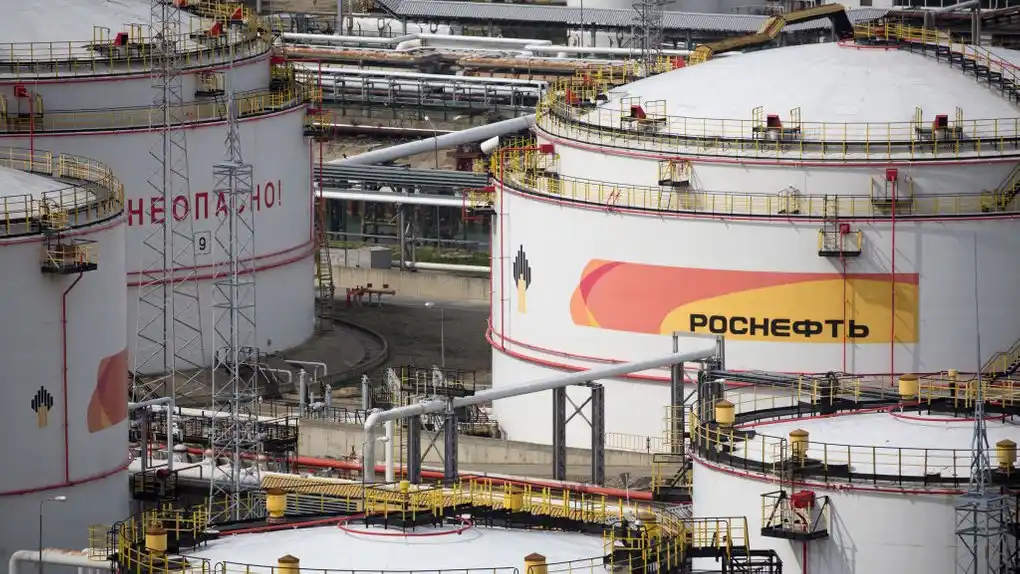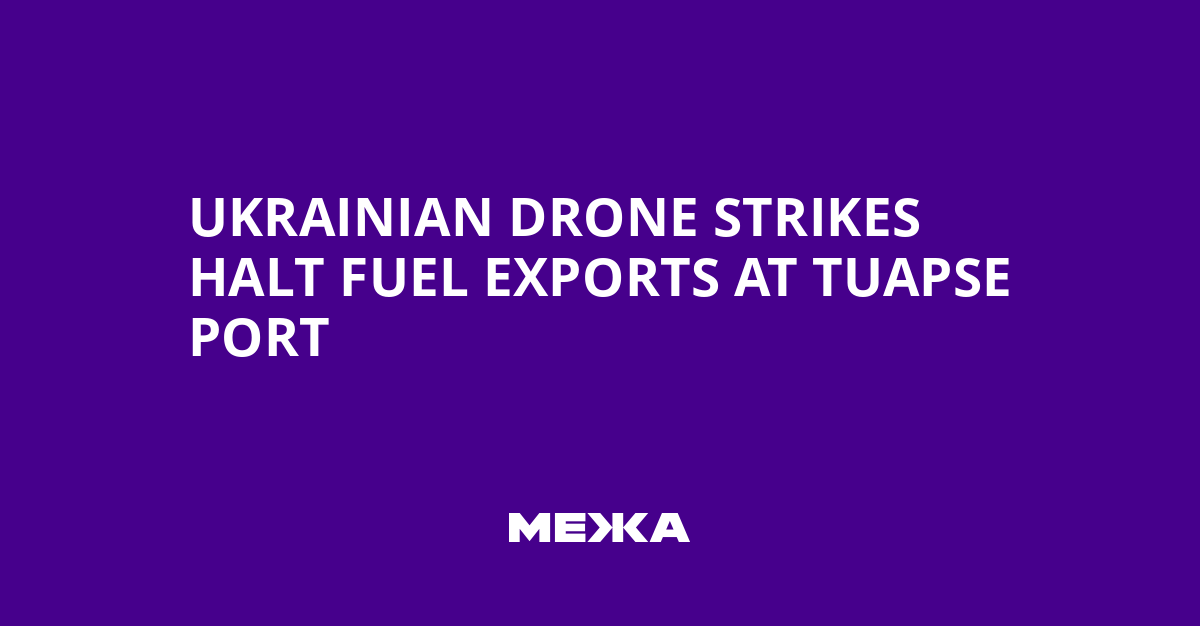
The Rosneft logo on an oil storage tank at the Tuapse oil refinery, Tuapse, Russia, March 23, 2020. Getty Images/Andrey Rudakov/Bloomberg
The port of Tuapse on the Kuban coast in Russia’s Krasnodar Krai suspended fuel exports, and the local oil refinery halted operations after Ukrainian drone strikes on November 2. According to available data, three tankers were in the port at the time of the attack, loading oil, diesel fuel, and fuel oil. By November 5, all vessels had been withdrawn from the berths and were anchored near the port.
Sources say that the Tuapse refinery, owned by Rosneft, ceased operations on November 3 due to damage to its infrastructure from drone strikes.
This refinery, export-oriented and with an approximate capacity of about 240 thousand barrels per day, produces oil, fuel oil, vacuum gasoil, and high-sulfur diesel fuel. The products primarily go to the People’s Republic of China, Malaysia, Singapore, and Turkey. Ahead of the attack, Tuapse port was expected to boost exports of oil products in November.
On the night of November 2, drones observed as part of Ukrainian operations attacked the Tuapse port. Preliminary counts indicate five hits: a tanker caught fire; at least four oil-loading stands went out of service; port buildings were also damaged. The Krasnodar Krai Operational Headquarters confirmed damage to port infrastructure and a fire.
On October 31, SBU head Vasyl Maliuk said that since the start of 2025 the Ukrainian Defense Forces had attacked Russian oil extraction and processing facilities nearly 160 times. He said that 20 such facilities were recorded in September–October.
Current Situation and Prospects
As of November 5, the situation with supply and exports from the port remains tense: the port infrastructure and related facilities are affected by ongoing hostilities and the conflict.
